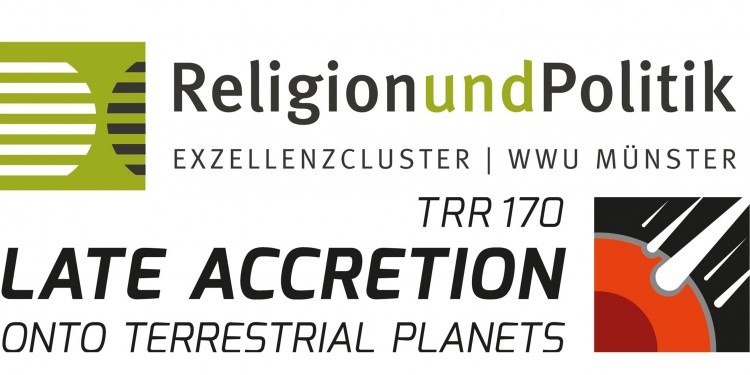
Individual challenges and opportunities
For the “Religion and Politics” Cluster of Excellence, in which more than 140 researchers from the Humanities and the Social Sciences are involved, the corona pandemic presents individual challenges – but, at the same time, opportunities too. “We’re taking a flexible approach to this unprecedented situation,” comments the Cluster’s spokesman, lawyer Prof. Nils Jansen, who had to break off a research stay in Scotland. “What we particularly regret,” he adds, “are the cancellations of a whole series of Cluster events with prestigious guests such as Blumenberg Professor and Egyptologist Jan Assmann, and the ethnologists Jean and John Comaroff from Harvard University – not to mention the talks we ourselves we due to give both at home and abroad.”
Junior researchers, who have to continue working on their qualifications, are struggling especially with the many restrictions. Dr. Felicity Jensz, a lecturer and mentor, is the contact person for PhD students at the Cluster of Excellence’s Graduate School, and she knows just how critical the current situation is for many of them. “Anyone who needs to collect data, for example through visits to archives, can only complete their work after a long delay,” she says. Fortunately, PhD student Arne Laßen, who is writing his thesis on Muslim practices in educational establishments, is not affected by the situation. He has been able to complete initial interviews in child daycare centres. “Now, for the moment, I’m reviewing my methods and busying myself with the secondary literature available online,” he explains.
Some of Felicity Jensz’ research work is currently being delayed. “The trips I had planned – for example, to Paris, Lisbon and Bologna – have been cancelled. Meetings with colleagues and building up important networks aren’t happening either for the time being,” says Jensz, who is currently at an important stage of her academic career.
For the research being undertaken by Prof. Angelika Lohwasser from the Institute of Egyptology and Coptology, the corona pandemic has two sides. “We had to hastily cancel a field trip we had planned to Sudan, but I’m now finalising an important manuscript. That’s something I need to do in peace and quiet, and as most meetings have been cancelled or postponed, I can use the time productively,” she says.
Nils Jansen has no real fears about delays to the overall schedule of the Cluster’s work. Discussions on organisational or research issues are carried out in videoconferences or by telephone, he says. “What I do miss, though, is direct contact and interaction with colleagues in order to have more detailed, interdisciplinary exchanges – but we’re making the best of the situation.”
The history of late accretions onto terrestrial planets is the focus of study of Collaborative Research Centre/Transregio (CRC/TRR) 170. Most of the team are working from home. Some of the researchers, though, have to keep an eye on lab tests. “A lot of these tests follow certain time sequences which we cannot allow to be interrupted, as that would have an enormous impact on the research we have done so far,” says CRC/TRR spokesman Prof. Thorsten Kleine.
In order to reduce contact between colleagues as far as possible, only two people are ever in the lab at the same time. The researchers enter time slots on an online diary. “That’s worked really well so far, and my colleagues coordinate their activities pretty much on their own,” says Kleine.
This applies, for example, to Jonas Schneider and Fridolin Spitzer, two PhD students. They both already wrote their master’s dissertation in the Cosmochemistry and Isotope Geochemistry working group at the Institute of Planetology. “We’ve familiarised ourselves with things pretty well and know our way around the lab now, which means we can carry out our research relatively independently,” says Schneider.” There are, however, some testing procedures which have to be learned from scratch. “A colleague was actually supposed to teach me the new methods,” says Spitzer, “but that has had to be dropped for the time being because the work steps have to be checked in very great detail – and for that we would have come too close to each other.”
One big challenge at the moment is the supervision of students engaged on completing their master’s dissertation and who need support in the lab. “Work on the mass spectrometers in particular is being left till later,” Thomas Kleine explains. “We very much hope that the situation will ease in a few weeks. If necessary, the supervisors will have to carry out the measurements themselves – but that would reduce the students’ learning success.”
One problem is in recruiting new colleagues and getting them familiarized with the work, as well as in planning the TRR 170’s integrated Graduate School, due to take place at the beginning of September. “We’re still aiming to meet the target because we think it’s important to begin as early as possible with the basic training for the PhD students,” says Kleine. “If we can’t hold the Summer School, we hope that we’ll be able to transfer the funding to next year,” he adds. Despite all the difficulties, there is something positive in the situation for the planetologists: “I have time to work on projects left unfinished – but I can only make slow progress on these, as home schooling for my children takes up time, at least in the mornings.”
Author: Kathrin Kottke
This article was first published in the University newspaper wissen|leben No. 3, May 2020.
